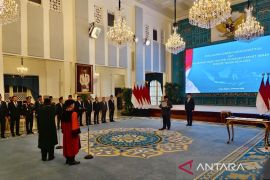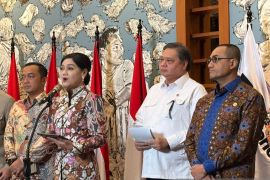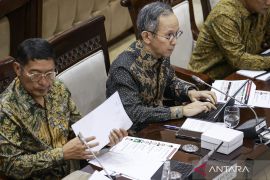"We are preparing with the Ministry of Finance and the OJK (Financial Services Authority)," Bank Indonesia Deputy Governor Dody Budi Waluyo informed Antara in Jakarta on Friday night, Jan 11.
Waluyo continues to prepare the financial instruments but has ensured that they would have attractive returns so that the repatriation funds remained in the domestic financial market.
"The return will be good," he affirmed.
On the other hand, taking into account the current economic fundamentals, Waluyo believes that the owners of repatriation funds will not rashly withdraw their funds from the Indonesian financial market. This is because the yields of the domestic market financial instruments have also been attractive, coupled with the fundamental parameters of the domestic economy that continue to improve.
In addition, a part of the repatriation funds collected in 2016 have also been channeled for financing and investment in the real sector, while others are placed in portfolio investment instruments.
"We have `confidence` that (the funds) will not go anywhere," he noted.
In mid-2016, the government held a tax amnesty program that lasted for nine months until March 2017. Under the program, the government offered lower ransom rates or forgiveness rates if the taxpayer intended to repatriate his assets abroad.
During that period, Indonesia managed to collect repatriation funds worth Rp147 trillion. The repatriation fund goes through a bank that acts as a gateway, or a Perception Bank. The bank also has the duty to receive ransom fees for asset declarations by taxpayers.
Funds for repatriating tax amnesty that enter the banking system will be in a period of "lock up" or locking out funds in the domestic financial system for a period of three years from the entry of the funds during the period from September 2016 to March 2017.
There lies a risk of these funds being transferred back abroad. If this occurs, there will be a transfer of funds that will cause pressure in the financial system.
Reporting by Indra Arief Pribadi
Editing by Rahmad Nasution
Reporter: Antara
Editor: Azizah Fitriyanti
Copyright © ANTARA 2019












